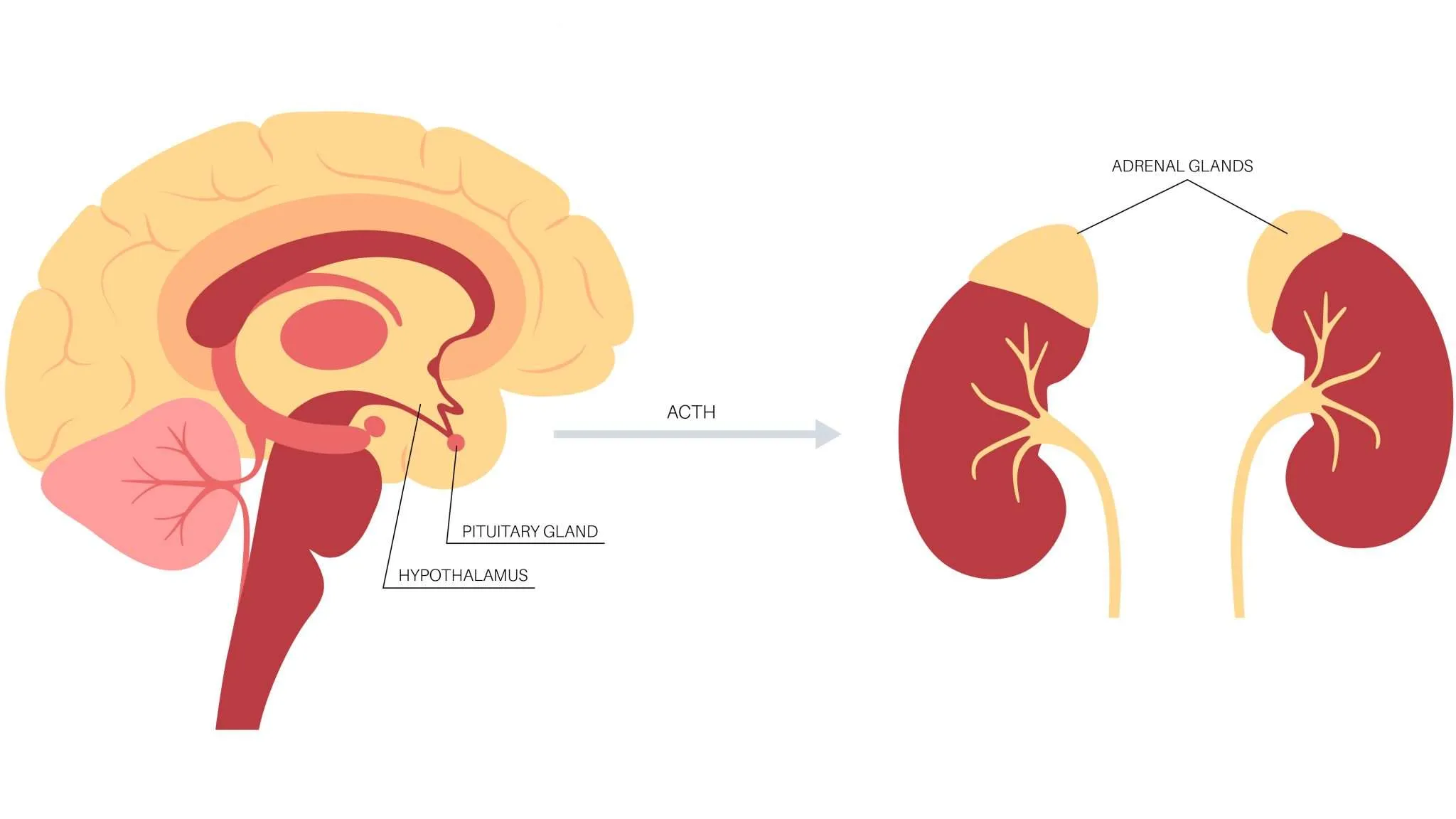
Some days feel heavier than others. It begins where the body forgets how to handle stress. Not because life changed. But because something inside stopped adjusting.
You wake up tired. Not the usual tired. A kind that seeps into your bones. Coffee doesn’t help. Light feels harsh. And suddenly, standing takes more effort.
The body starts whispering before it screams. It lets go of balance slowly. And by the time you notice, Addison’s disease has already changed how your mornings begin.
The adrenal glands go quiet, even when the body’s screaming
The body still sends its signals. But the messengers never arrive. The adrenal glands go quiet, even when the body’s screaming. That silence becomes dangerous.
Cortisol stays low. Even during panic. Aldosterone fades. Blood pressure drops. Salt cravings rise. Muscles ache. The heart pounds without rhythm. Then slows too much.
You feel dizzy. Not once, but often. Especially when you stand. And that tiredness? It never leaves. Even after sleep. Even after rest. It lingers, quiet but constant.
You feel weaker, but not in ways others can see
Strength doesn’t vanish overnight. It slips away. You feel weaker, but not in ways others can see. Climbing stairs feels strange. Lifting groceries becomes awkward.
You drop things more. You sit longer. You don’t bounce back from stress. A small cold feels like a mountain. Your body stops buffering everyday life.
Sometimes you feel better. Sometimes worse. But never stable. And that instability becomes the hardest part. Not knowing what version of yourself will show up tomorrow.
Skin begins to change before answers arrive
You catch yourself in the mirror. Something looks off. Skin begins to change before answers arrive. Not paler. Not darker. Just… different.
Hyperpigmentation appears slowly. Around scars, joints, creases. A tan that never fades. A shadow that deepens with time. People notice. But don’t ask.
And it’s not just the skin. Nails grow slower. Hair sheds faster. The body starts pulling away from itself. As if conserving energy for something you can’t feel.
The salt cravings don’t make sense until they do
You want chips. Then olives. Then broth. The salt cravings don’t make sense until they do. They’re not about flavor. They’re about survival.
Without aldosterone, sodium slips away. Water follows. Blood pressure plummets. The body asks for what it’s missing. And your brain translates it into craving.
You drink water, but feel thirstier. You eat, but feel weaker. And still, no one connects the dots. Until tests reveal what your body’s been trying to say for months.
It doesn’t flare—it fades
Addison’s doesn’t strike like lightning. It doesn’t flare—it fades. Symptoms unfold over time. Slowly enough to seem unrelated. Strong enough to undo daily life.
You adapt. You push through. You tell yourself it’s stress. Or age. Or fatigue. But nothing explains why the sun feels heavier than before. Why mornings hurt more.
And by the time someone says “adrenal insufficiency,” you already knew. Somewhere deep down. Your body had been saying it all along.
Crises feel like collapsing from the inside out
When left untreated, Addison’s can crash hard. Crises feel like collapsing from the inside out. Blood pressure drops. Confusion sets in. Nausea follows.
The body can’t manage even minor stress. Illness. Injury. Dehydration. All trigger spirals. Fast and hard. Hospital visits. IV steroids. Heart monitors. Silence.
Recovery takes time. Rebuilding takes longer. And the fear stays. You remember how fast things fell apart. And how close everything felt to slipping away.
Treatment isn’t about healing—it’s about replacement
Steroids become routine. Not the kind you hear about. The kind your body no longer makes. Treatment isn’t about healing—it’s about replacement.
Hydrocortisone. Fludrocortisone. Timed doses. Adjustments for illness, heat, stress. A new rhythm. Not chosen, but necessary. You carry pills everywhere.
There’s no cure. Just maintenance. But with it, life returns. Not perfectly. Not like before. But close enough to feel stable again.
You become your own alarm system
Doctors guide the treatment. But you live it. You become your own alarm system. Watching for signs. Logging symptoms. Adjusting dosages. Trusting intuition.
You learn the edge of fatigue. The tone of dizziness. You feel low cortisol before it spikes. You plan meals. Hydration. Sleep. You tell people, just in case.
And sometimes, you still misread the signs. Sometimes you fall. But less than before. Because now you know the language your body speaks.
Life doesn’t shrink—it shifts
Diagnosis changes you. Not just physically. Emotionally. Mentally. Life doesn’t shrink—it shifts. You learn to move slower. Rest deeper. Listen better.
You let go of pushing through. You set boundaries. Say no more. And when the day goes dark, you wait for the light. Without guilt. Without rush.
You still live. Still laugh. Still try. But differently. You don’t chase energy anymore. You protect it. And in that quiet choice, you return to yourself.
